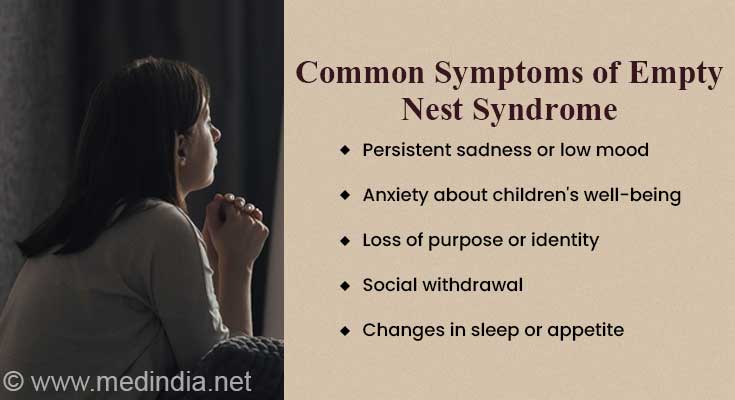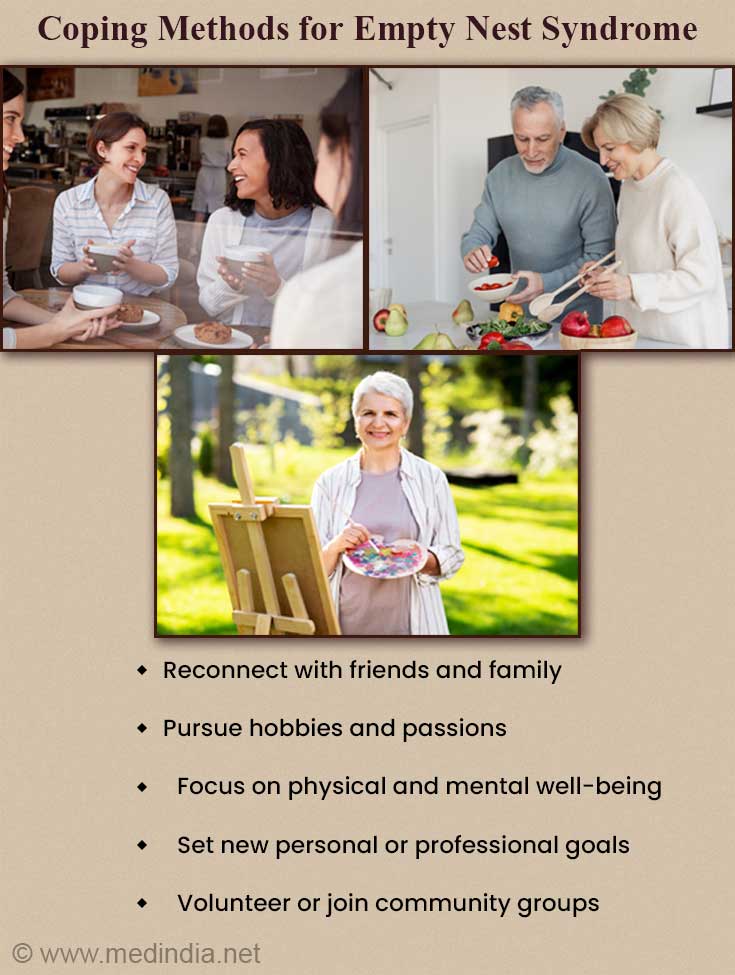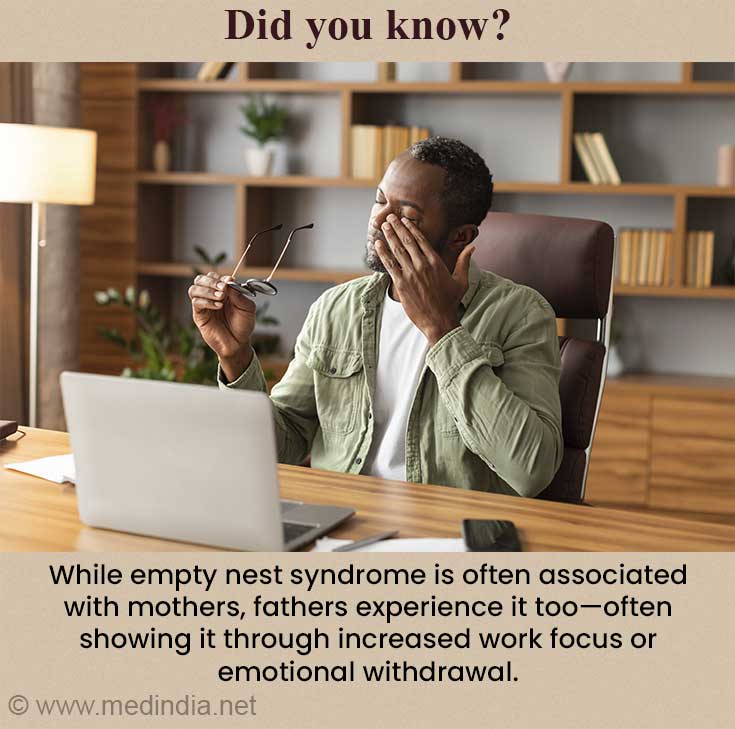- Empty nest syndrome - (https://www.betterhealth.vic.gov.au/health/healthyliving/empty-nest-syndrome)
- How To Cope With Empty Nest Syndrome - (https://health.clevelandclinic.org/empty-nest-syndrome)
About
When children grow up and leave home for college, work, or marriage, parents undergo a significant emotional transition known as Empty Nest Syndrome (ENS). While this stage brings pride and joy as parents witness their children's independence, it can also bring feelings of sadness, anxiety, and loss of purpose. Though not classified as a clinical condition, the emotional impact of ENS can be significant and long-lasting. Understanding its coping strategies is essential for parents navigating this transition(1✔ ✔Trusted Source
Empty nest syndrome
Go to source).
Did You Know?
Parents experiencing empty nest syndrome are more likely to face mild depression than severe cases. #mentalhealth #medindia
What is Empty Nest Syndrome?
Empty Nest Syndrome refers to the emotional distress and feelings of loss experienced by parents when their children leave home. The “empty nest” signifies a quieter household, where parents are left adjusting to a new routine without the daily responsibilities of child-rearing(1✔ ✔Trusted Source
Empty nest syndrome
Go to source).
According to a business coach from Mumbai, “Many women dedicate their entire lives to their children, believing that caring for them is their sole purpose. When the kids leave, it creates a deep void, bringing loneliness, identity loss, and even health issues.”
The syndrome can affect both parents but is often more intense for mothers who closely identify with their care giving role. ENS may also affect young adults who feel responsible for their parents’ emotional well-being, potentially leading to impatience or resentment(2✔ ✔Trusted Source
How To Cope With Empty Nest Syndrome
Go to source).
Causes of Empty Nest Syndrome
The onset of ENS is influenced by multiple factors, including identity shifts, relationship dynamics, and life stressors.
1. Identity Shift
Parents who have invested much of their identity in raising children may feel a deep sense of loss when their role as a caregiver diminishes.
2. Relationship Dynamics
For parents in unsatisfactory relationships, the departure of children may highlight issues in their marriage, intensifying feelings of loneliness and grief.
3. Coping with Change
Some individuals naturally struggle with change. The shift from a full household to an empty one can be especially challenging for them.
4. Life Stressors
Concurrent stressors like retirement, health issues, or caring for elderly parents can amplify feelings of loss, making the transition more difficult.
Symptoms of Empty Nest Syndrome
Symptoms of ENS vary, but they often share common emotional and behavioral patterns.
1. Emotional Distress
Sadness, anxiety, and grief are common as parents adapt to a quieter home and changing routines.

2. Loss of Purpose
Without daily responsibilities related to child-rearing, some parents feel unneeded or uncertain about their purpose.
3. Excessive Worry for Children
Parents may worry excessively about their children’s ability to manage life independently, leading to heightened anxiety.
4. Social Isolation
Some parents withdraw from social circles, especially if friends or family don’t share similar experiences.
Interestingly, studies indicate that while parents facing ENS are more likely to experience mild depression, severe depression is less common.
Coping Strategies for Parents
While ENS is challenging, parents can adopt effective strategies to navigate this transition positively(2✔ ✔Trusted Source
How To Cope With Empty Nest Syndrome
Go to source).
1. Accept and Acknowledge Your Feelings
It’s normal to grieve the changes in your household. Allow yourself to process these emotions rather than suppress them.
2. Journal for Clarity
Writing down thoughts can provide emotional clarity and help identify new goals and aspirations.

3. Find New Purpose
Explore volunteering, mentoring, or starting a new project. Finding a fulfilling purpose beyond parenting helps rebuild identity.
4. Pursue Passions and Hobbies
Rediscover activities and hobbies that bring joy. Whether it’s painting, traveling, or gardening, personal interests can be deeply rewarding.
5. Prioritize Self-Care
Invest time in your well-being through exercise, healthy eating, and mindfulness practices like guided meditation.
6. Reconnect with Your Spouse and Friends
This phase is an opportunity to strengthen old relationships and form new ones. Shared experiences with friends can provide support and reduce isolation.
7. Maintain a Healthy Connection with Your Children
Stay connected with your children but respect their independence. Trusting their ability to manage life fosters healthy relationships.

Empty Nest Syndrome is a natural part of parenting that brings emotional challenges but also opportunities for growth. By recognizing the causes and symptoms, parents can adopt coping strategies such as pursuing new interests, practicing self-care, and strengthening relationships.
While the transition may be difficult, it marks the start of a new chapter-one filled with possibilities for rediscovery, renewal, and personal fulfillment.









